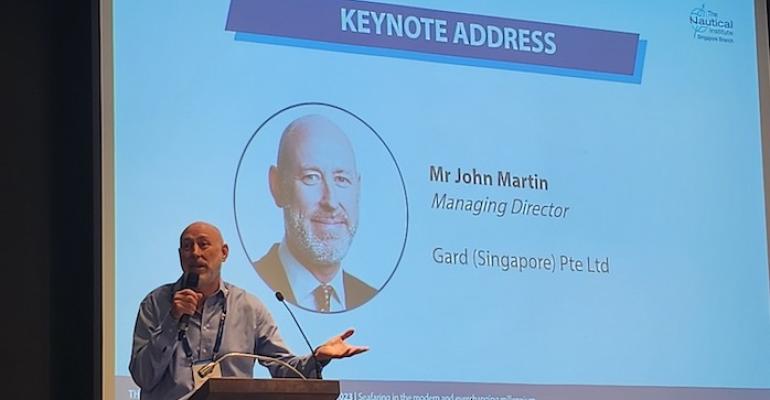The growing so-called dark fleet of vessels transporting sanctioned oil cargoes has grown rapidly since the Russian invasion of Ukraine last year and Windward.ai has identified up to 1,100 ships in this shadow trading fleet.
The dark fleet has also raised fears of a rise casualties with it made up of older vessels with lower maintenance standards, and lacking in insurance cover, that could threaten the global fleet and environment.
However, in an effort to attract seafarers to work on dark fleet vessels they are being offered higher wages by unscrupulous operators. “We hear all the time, from many operators, their crew are getting offered more money to go and work on the dark fleet,” John Martin, Managing Director for P&I insurers Gard in Singapore, told the Nautical Institute (Singapore) conference last week.
He noted though that such vessels had “a very poor insurance solution” or in fact “insurance solution”.
Where there is a casualty and potential criminalisation of the seafarers onboard by local authorities and agencies Martin said, “we have got your back”.
“But if you're in the Dark Fleet, there's no one that's going to protect you,” he stated.
This has two implications – the increased chances of an accident that pollutes the environment as the ships are mostly standard, and for seafarers, “There's no one to protect them, so they end up in the slammer, more often than not with no one to look out for them.”
Martin recommended seafarers stick with reputable operators.
Copyright © 2024. All rights reserved. Seatrade, a trading name of Informa Markets (UK) Limited.
Add Seatrade Maritime News to your Google News feed.  |

